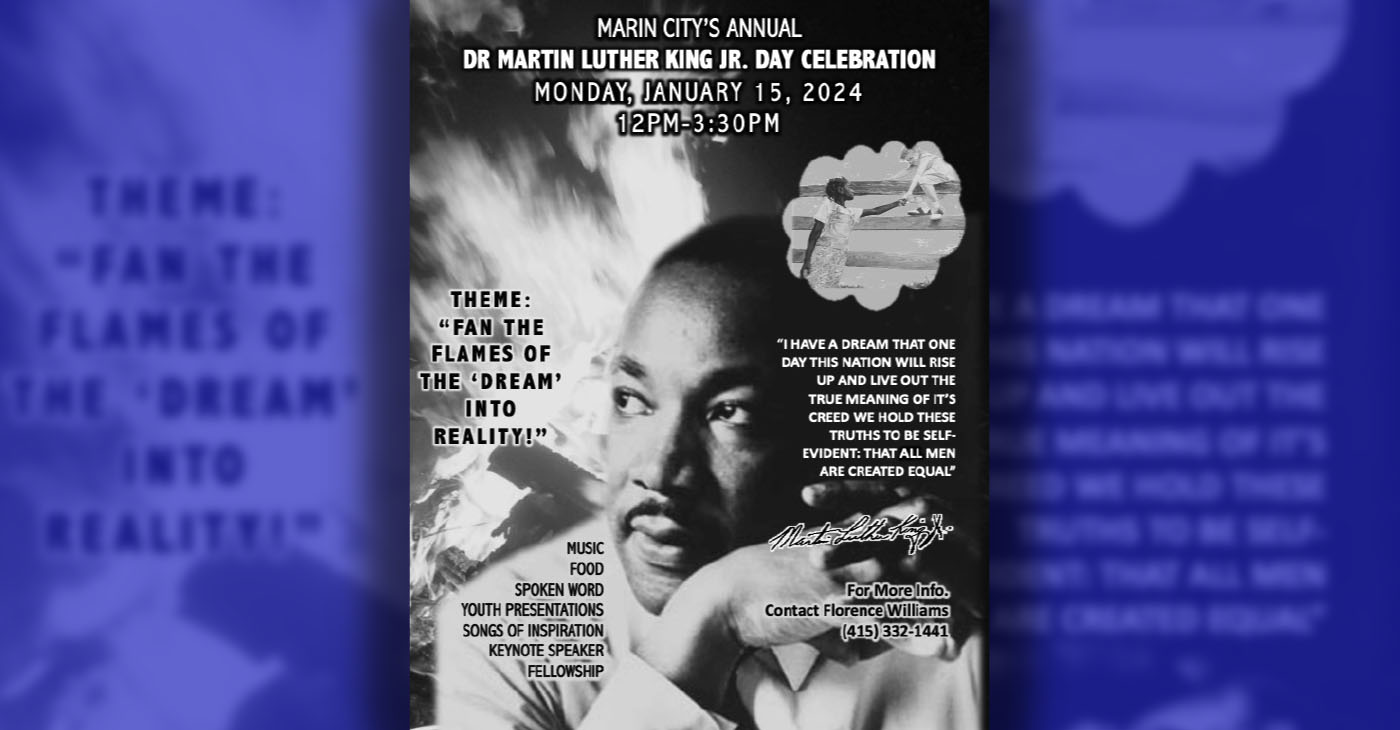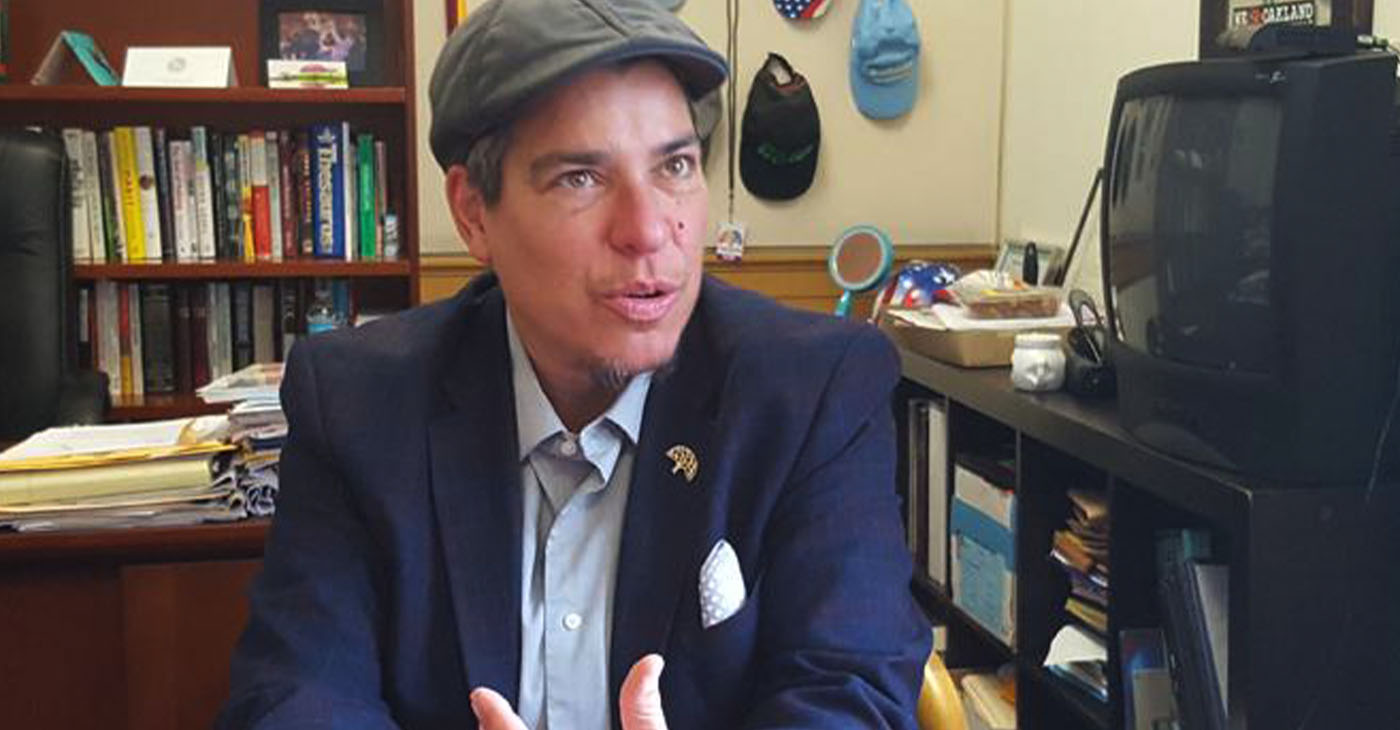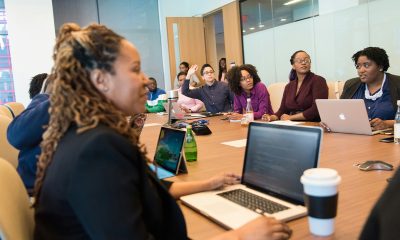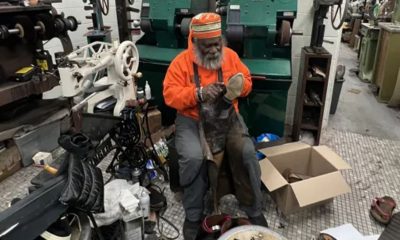Family
Mothering Justice Hosts Women Legislators
THE AFRO — Key agenda items for the organization is raising the minimum wage, family medical leave insurance (FMLI), maternal justice– which champions issues of infant and maternal mortality and sustaining safety net programs for mothers and families such as SNAP and Medicaid.
By George Kevin Jordan
It was a meeting of the minds as Mothering Justice held a discussion panel with some of the countries top leaders to discuss issues that dramatically impact women, mothers and families.
Several attendees gathered at the American Federation of Teachers on New Jersey Ave. NW, as well as online for the livestream of the event. In attendance were Rep. Bed Haaland, (D-MI), Sen. Kamala Harris (D-CA), Rep. Brenda Lawrence (D-MI) Rep. Rashida Tlaib (D-MI) and Rep. Lauren Underwood (D-IL) and a host of other thought leaders and policy makers.
Mothering Justice is a statewide organization based in Michigan dedicated to empowering mothers to lobbyists. The organization works in advocacy, leadership development, and voter engagement.
Key agenda items for the organization is raising the minimum wage, family medical leave insurance (FMLI), maternal justice– which champions issues of infant and maternal mortality and sustaining safety net programs for mothers and families such as SNAP and Medicaid.
Rep. Tlaib shared stories of real women, her constituents facing inequities in Michigan, from the shutting down of day care programs, to lead in the water, saying, “It’s really important as we look at these policy issues that we also uplift these stories, and if we do nothing what that looks like.”
“It’s hard out here. I am very vulnerable cause I’m like ‘what do you mean you don’t understand why people are on the food line when there’s a shutdown? ‘Well why can’t they get a loan?’ That’s the reality of what we have in Congress,” Tlaib said.
“The movement outside the halls of Congress is where things are going to happen.”
One of the main issues on the table was Labor Project for Working Families.
“When we don’t have paid medical leave, families lose money,” said Carol Joyner, director of the Labor Project for Working Families (LPWF) with Family Values at Work (FV@W)
“These are purely economic issues. We’re hoping we see the strongest paid leave bill out of Congress to cover [those] who need time to welcome a new baby, take care of someone sick in their family or take care of themselves.”
Sade Moonsammy, director of operations and strategic planning for LPWF with FV@W, said it’s also important to address our ever expanding concept of family.
“It’s also talking about the definition of family and who’s involved in family. This is an issue beyond women. This is a non-binary issue, it’s a trans issue; this is how we look at all the intersections of family. It doesn’t matter if it passes, if families are cut out of it.”
“Before you can fix any problem you have to know it’s happening,” Rep. Lawrence said. “When you look at poverty in America the largest group is women and children. A woman in poverty- almost 60 percent of her pay goes to childcare. When we look at the largest amount of student debt it’s women.”
Sen. Harris brought home the fact that mother’s issues is everyone’s issue saying, “What is good for the mothers of our country is good for the babies of our country, is good for our country.”
“There have been many times when people come up to me and say ‘Kamala tell us about women’s issues.’ And I say, ‘You know what I am so glad you want to talk about the economy.’ Because we know when you lift up the economic status of women, you lift up the economic status of families of neighborhoods and community and all of society.”
Danielle Atkinson, founding director of the organization said next steps for Mothering Justice, is to “continue to push this issue in the state.”
“We are organizing, but we want to continue to raise these issues and make sure they are front and center in 2020,” Atkinson said. “In all of those races the presidential, the congressional, those candidates are forced to address these issues and what their plan is to solve them.”For more information about Mothering Justice and their movement please go to https://motheringjustice.org/
This article originally appeared in The Afro.
Activism
Hurlbut Benevolent Foundation Teams with RichmondWORKS to Feed Families
Over 300 families in Richmond received $100 food coupons during the holidays thanks to a partnership involving a local foundation and RichmondWORKS.

Richmond Standard
Over 300 families in Richmond received $100 food coupons during the holidays thanks to a partnership involving a local foundation and RichmondWORKS.
Richmond residents Maryn and Garry Hurlbut and the Hurlbut Benevolent Foundation (HBF) Board of Directors partnered with Bouakhay Phongboupha, program manager for RichmondWORKS, to make the distribution possible.
“Bouakhay and her staff have been able to identify some of the most needy families in Richmond who could make the best use of the supplemental food over the holiday season,” Garry Hurlbut said.
The Hurlbuts are retirees and Richmond residents who are very active in the community. One of the pair’s significant contributions is starting the Richmond Tennis Association, which significantly amplified tennis participation and facilities in the city.
Community
Coming Soon: MLK Jr. Day Celebration on Jan. 15
Marin City will be hosting its Dr. Martin Luther King Jr. Day Celebration on Monday, Jan. 15, 2024, from 12 p.m. to 3:30 p.m.

Marin City will be hosting its Dr. Martin Luther King Jr. Day Celebration on Monday, Jan. 15, 2024, from 12 p.m. to 3:30 p.m.
The theme will be “Fan the Flames of the ‘Dream’ Into Reality!”
The celebration will have music, food, spoken word, youth presentations, songs of inspiration, speakers and fellowship.
For more information, contact Florence Williams at (415) 332-1441
Activism
Kaplan, Councilmembers Support Expanded Safe Car Park Program for Unhoused
The need for safe overnight parking is crucial and well-documented, according to Kaplan. In January 2022, the Point-In-Time Homeless Count and Survey revealed that there are more than 3,337 unsheltered individuals in Oakland, and the number of people living in their vehicles has increased. Homelessness is a complex crisis that requires both short-term and long-term solutions, she said.

By Post Staff
Councilmember Rebecca Kaplan has released a statement saying she is encouraged that the Oakland City Council has approved resolutions she introduced in partnership with Council President Nikki Bas and Councilmember Carroll Fife to support local faith-based congregations who use their properties as safe overnight parking to help Oakland’s unhoused population living in their vehicles.
The need for safe overnight parking is crucial and well-documented, according to Kaplan. In January 2022, the Point-In-Time Homeless Count and Survey revealed that there are more than 3,337 unsheltered individuals in Oakland, and the number of people living in their vehicles has increased. Homelessness is a complex crisis that requires both short-term and long-term solutions, she said.
The data shows that while the proportion of unhoused people living in tents has decreased in recent years, the proportion living in cars has increased. Therefore, this effort partners with local faith-based organizations to help those living in their vehicles, Kaplan said.
The Interfaith Council of Alameda County (ICAC) Safe Parking program provides safe and legal overnight parking at local churches. This program provides support for minor auto repairs, car registration and tickets, along with access to showers and laundry. It is an essential program for Oakland’s unhoused population that lives in their vehicles, including single adults, couples and families with small children, Kaplan said.“The Interfaith Council of Alameda County, in partnership with the Westside Missionary Baptist Church, has run a safe car park program for the last five years with many other congregations and partner nonprofits. With the leadership of Kaplan, on the Council, the Mayor’s office, Council President Nikki Bas, and Councilmember Carrol Fife, we were able to get a commitment of funding of $450,000 from the City of Oakland to expand our operations to three sites to continue to support the Oakland community living in their cars,” said Rev. Ken Chambers, ICAC president.Kaplan has pointed out that the city has money for the safe car park program but has not spent it.Oakland voters approved Measure Q with 68% of the vote. Measure Q promised voters park maintenance, litter reduction and homelessness intervention in and around city parks. However, the City Auditor found the City underspent collected taxes, accruing a fund balance of nearly $22 million as of June 30, 2023.
-

 Activism4 weeks ago
Activism4 weeks agoOakland Post: Week of March 20 – 26, 2024
-

 #NNPA BlackPress3 weeks ago
#NNPA BlackPress3 weeks agoMayor, City Council President React to May 31 Closing of Birmingham-Southern College
-

 #NNPA BlackPress3 weeks ago
#NNPA BlackPress3 weeks agoCOMMENTARY: D.C. Crime Bill Fails to Address Root Causes of Violence and Incarceration
-

 #NNPA BlackPress3 weeks ago
#NNPA BlackPress3 weeks agoFrom Raids to Revelations: The Dark Turn in Sean ‘Diddy’ Combs’ Saga
-

 #NNPA BlackPress3 weeks ago
#NNPA BlackPress3 weeks agoCOMMENTARY: Lady Day and The Lights!
-

 #NNPA BlackPress3 weeks ago
#NNPA BlackPress3 weeks agoBaltimore Key Bridge Catastrophe: A City’s Heartbreak and a Nation’s Alarm
-

 #NNPA BlackPress3 weeks ago
#NNPA BlackPress3 weeks agoBaltimore’s Key Bridge Struck by Ship, Collapses into Water
-

 Activism3 weeks ago
Activism3 weeks agoOakland Post: Week of March 27 – April 2, 2024

















































